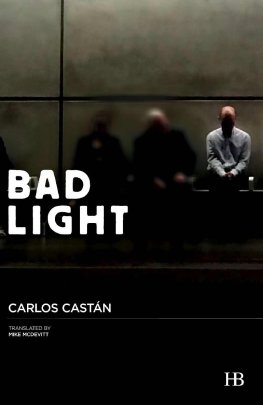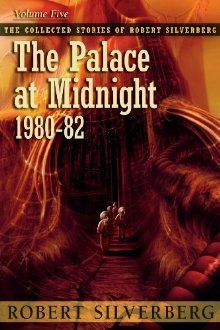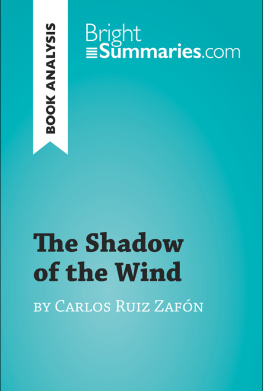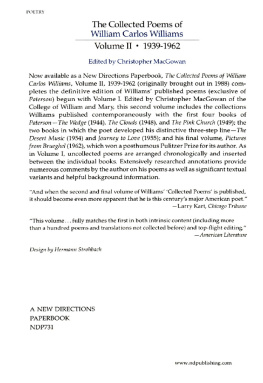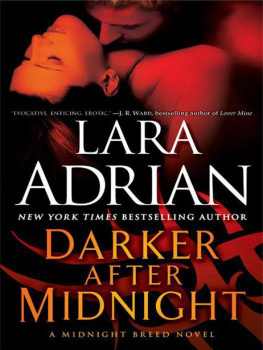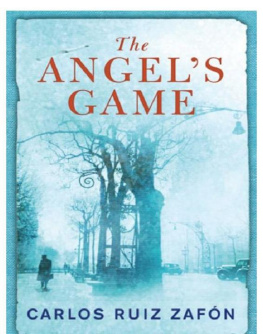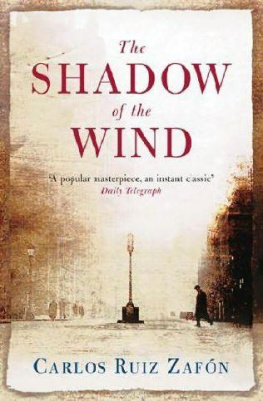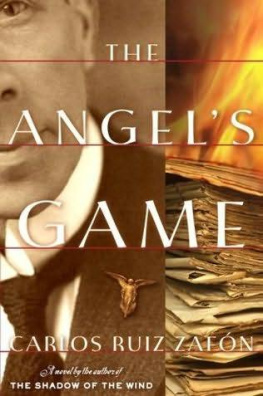Carlos Zafon - The Midnight Palace
Here you can read online Carlos Zafon - The Midnight Palace full text of the book (entire story) in english for free. Download pdf and epub, get meaning, cover and reviews about this ebook. genre: Detective and thriller. Description of the work, (preface) as well as reviews are available. Best literature library LitArk.com created for fans of good reading and offers a wide selection of genres:
Romance novel
Science fiction
Adventure
Detective
Science
History
Home and family
Prose
Art
Politics
Computer
Non-fiction
Religion
Business
Children
Humor
Choose a favorite category and find really read worthwhile books. Enjoy immersion in the world of imagination, feel the emotions of the characters or learn something new for yourself, make an fascinating discovery.

- Book:The Midnight Palace
- Author:
- Genre:
- Rating:4 / 5
- Favourites:Add to favourites
- Your mark:
- 80
- 1
- 2
- 3
- 4
- 5
The Midnight Palace: summary, description and annotation
We offer to read an annotation, description, summary or preface (depends on what the author of the book "The Midnight Palace" wrote himself). If you haven't found the necessary information about the book — write in the comments, we will try to find it.
The Midnight Palace — read online for free the complete book (whole text) full work
Below is the text of the book, divided by pages. System saving the place of the last page read, allows you to conveniently read the book "The Midnight Palace" online for free, without having to search again every time where you left off. Put a bookmark, and you can go to the page where you finished reading at any time.
Font size:
Interval:
Bookmark:

Carlos Ruiz Zafon
The Midnight Palace
I ll never forget the night it snowed over Calcutta. The calendar at St Patricks Orphanage was inching towards the final days of May 1932, leaving behind one of the hottest months ever recorded in the city of palaces.
With each passing day we felt sadder and more fearful of the approaching summer, when we would all turn sixteen, for this would mean our separation and the end of the Chowbar Society, the secret club of seven members that had been our refuge during our years at the orphanage. We had grown up there with no other family than ourselves, with no other memories than the stories we told in the small hours round an open fire in the courtyard of an abandoned mansion a large rambling ruin which stood on the corner of Cotton Street and Brabourne Road and which wed christened the Midnight Palace. At the time, I didnt know I would never again see the streets of my childhood, the city whose spell has haunted me to this day.
I have never returned to Calcutta, but I have always been true to the promise we all made to ourselves on the banks of the Hooghly River: the promise never to forget what we had witnessed. Time has taught me to treasure the memory of those days and to preserve the letters I received from the accursed city, for they keep the flame of my memories alive. It was through those letters that I found out our palace had been demolished and an office building erected over its ashes, and that Mr Thomas Carter, the head of St Patricks, had passed away after spending the last years of his life in darkness, following the fire that closed his eyes for ever.
As the years went by, I heard about the gradual disappearance of all the sites that had formed the backdrop to our lives. The fury of a city that seemed to be devouring itself and the deceptive passage of time eventually erased all trace of the Chowbar Society and its members; at which point, I began to fear that this story might be lost for ever for want of a narrator. The vagaries of fate have chosen me, the person least suited to the task, to tell the tale and unveil the secret that both bonded and separated us so many years ago in the old railway station of Jheeters Gate. I would have preferred someone else to have been in charge of rescuing this story, but once again life has taught me that my role is to be a witness, not the leading actor.
All these years Ive kept the few letters sent to me by Roshan, guarding them closely because they shed light on the fate of each member of our unique society; Ive read them over and over again, aloud, in the solitude of my study. Perhaps because somehow I felt that I had unwittingly become the repository of everything that had happened to us. Perhaps because I understood that, among that group of seven youngsters, I was always the most reluctant to take risks, the least daring, and therefore the most likely to survive.
In that spirit, and trusting that my memory wont betray me, I will try to relive the mysterious and terrible events that took place during those four blazing days in May 1932.
It will not be easy and I beg my readers to forgive my inadequate words as I attempt to salvage that dark Calcutta summer from the past. I have done my best to reconstruct the truth, to return to those troubled days that would inevitably shape our future. All that is left for me now is to take my leave and allow the facts to speak for themselves.
Ill never forget the fear on the faces of my friends the night it snowed in Calcutta. But, as Ben used to tell me, the best place to start a story is at the beginning

Calcutta, May 1916
Shortly after midnight a boat emerged out of the mist that rose like a fetid curse from the surface of the Hooghly River. The faint glow of a flickering lantern attached to the mast revealed the figure of a man wrapped in a cape, rowing with difficulty towards the distant shore. Further to the east, under a blanket of leaden clouds, the outline of Fort William in the Maidan a sort of Hyde Park carved out of tropical jungle stood out against an endless expanse of street lamps and bonfires that spread as far as the eye could see. Calcutta.
The man stopped for a few moments to recover his breath and look back at the silhouette of Jheeters Gate Station rising from the shadows on the opposite bank. The further he went, the more the station made of glass and steel seemed to melt into the city a jungle of marble mausoleums blackened by decades of neglect; naked walls once coated in ochre, blue and gold, their colours peeled away by the fury of the monsoon, leaving them blurred and faded, like watercolours dissolving in a pond.
Only the certainty that he had just a few hours to live perhaps only a few minutes kept him going, leaving behind in that ill-fated place the woman he had sworn to protect. As Lieutenant Peake made his last journey to Calcutta, aboard an old river boat, the rain that had arrived in the early hours of darkness was washing away every last second of his life.
While he struggled to row the boat towards the shore, the lieutenant could hear the crying of the two babies hidden inside the bilge. Peake turned his head and noticed the lights of the other boat twinkling only a hundred metres behind him. He pictured the smile of his pursuer, savouring the hunt for his prey. Relentless.
Ignoring the childrens tears of hunger and cold he applied his remaining strength to steering the boat towards the threshold that led into the ghostly labyrinth of streets. Two hundred years had been enough to transform the thick jungle growing around Kalighat into a city even God did not dare enter.
In a matter of minutes the storm looming over the city had unleashed all its fury. By mid-April and well into the month of June, the city withered in the clutches of the so-called Indian summer, with temperatures reaching up to forty degrees and a level of humidity close to saturation. But with the arrival of violent electric storms, which turned the sky into a battle scene, thermometers could plunge thirty degrees in a few moments.
The curtain of rain hid the unsteady jetties of rotten wood that dangled over the waters edge, but Peake didnt stop until he felt the hull hit the planks of the fishermens dock. Only then did he thrust the anchoring pole into the muddy riverbed and rush to extract the children, who lay wrapped in a blanket. As he took them in his arms, the crying of the babies permeated the night like a trail of blood calling out to a predator. Pressing the bundle against his chest, Peake jumped ashore.
As the rain pelted down, he saw the other boat approaching the river bank, slowly, like a funeral barge. Gripped by fear, Peake ran towards the streets bordering the southern edge of the Maidan, a district known by its privileged residents mostly British and other Europeans as the White Town.
He clung to one remaining hope of being able to save the children, but he was still far from the heart of North Calcutta and Aryami Boses house. The old lady was the only person who could help him now. Peake stopped for a moment and scanned the gloomy expanse of the Maidan, searching for the distant glow of the street lamps that flickered in the northern part of the city. The dark streets, cloaked by the storm, would be his safest hiding place. Holding the children tight, Lieutenant Peake set off again, heading east, hoping to find cover in the shadows cast by the palatial buildings of the city centre.
Next pageFont size:
Interval:
Bookmark:
Similar books «The Midnight Palace»
Look at similar books to The Midnight Palace. We have selected literature similar in name and meaning in the hope of providing readers with more options to find new, interesting, not yet read works.
Discussion, reviews of the book The Midnight Palace and just readers' own opinions. Leave your comments, write what you think about the work, its meaning or the main characters. Specify what exactly you liked and what you didn't like, and why you think so.

